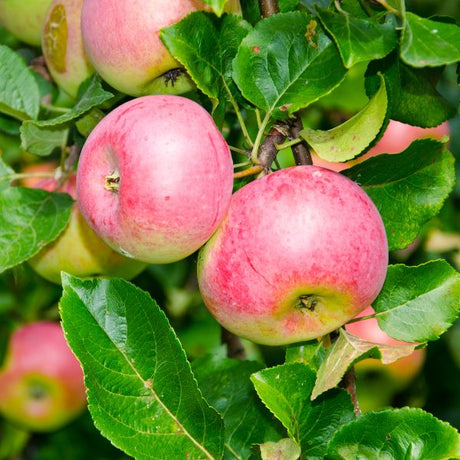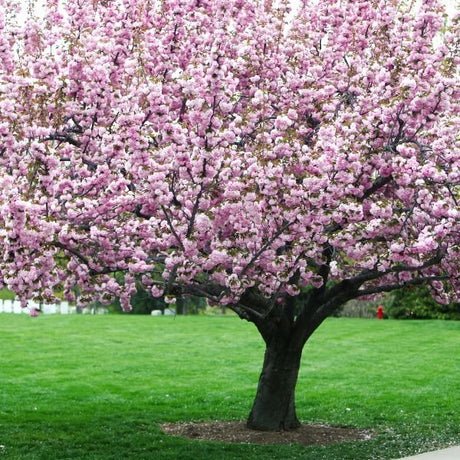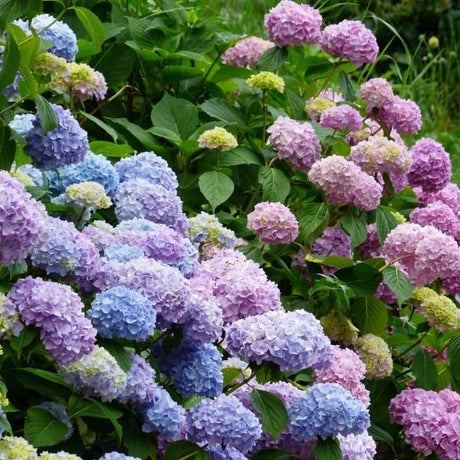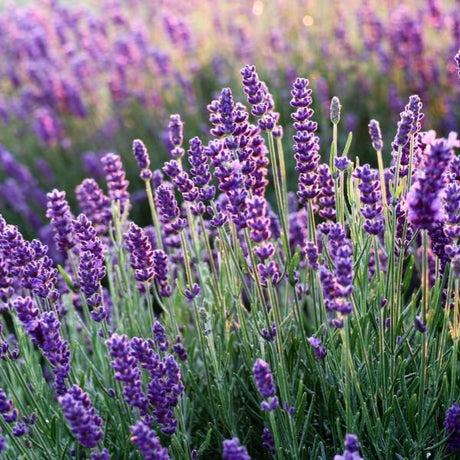Redwing® American Cranberrybush Viburnum
- Stay Protected with Plant Sentry ™
Redwing® American Cranberrybush Viburnum - 2-3 Feet Bareroot is backordered and will ship as soon as it is back in stock.
To receive an email notification when our next crop is ready, please enter your email below..*
Plant Sentry™
Plant Sentry™
Plant Sentry is designed to protect both consumers and the nursery trade from invasive plant pests and diseases. Sites that display the Plant Sentry protection badge are protected from consumers buying and nurseries shipping material carrying invasive pests and diseases.
This proprietary eCommerce software prevents the shipment of a restricted plant to each state. The Plant Sentry system includes a shipment certification program. The Plant Sentry Compliance Officer works closely with NatureHills.com and each nursery or fulfillment center to ensure only compliant plants are sold to customers.
Click Here to learn more

Delivery and Shipping
Delivery and Shipping
Shipping
To obtain a more accurate shipment time-frame, simply enter your zip code in the “Find Your Growing Zone” box to the right. Our plants are grown all over the country and lead time on items may be different because of this. Once your order is placed, you will also receive the specific shipment time-frame information as part of your order confirmation. Once an item ships, you will receive shipment notification and tracking numbers, so you can follow along while your plant travels to your doorstep. We use FedEx, UPS, or USPS at our discretion.
Due to winter weather we have put a hold on shipping to the areas shown below in grey. You can still order now and we will ship the plant to you during an appropriate time for your zone.
Standard Shipping Rates
At Nature Hills we handle, package and ship the products you order with the utmost care to ensure healthy delivery. Shipping and handling charges are calculated based on the tables below. Please note that some items include an additional handling surcharge, these will be noted on the item's product page.
| From | To | S&H |
|---|---|---|
| $0 | $19.99 | $24.99 |
| $20 | $49.99 | $29.99 |
| $50 | $69.99 | $34.99 |
| $70 | $99.99 | $39.99 |
| $100 | $129.99 | $44.99 |
| $130 | $149.99 | $48.99 |
| $150 | $150+ | Approx 28% |
Click here to see our full rates
Buying Options for Plants
Nature Hills sells a large variety of plants with several options available. Plants are offered in both potted containers and as dormant bare root without soil. Here is a helpful resource to understand your options as you create a beautiful landscape with help from Nature Hills.
Ever wonder what a larger plant will mean for your landscape? Container Sizes are really all about the age of the plant!
Seasonally, Nature Hills offers hand selected, high quality bare root trees, shrubs and perennials. Bare root plants are sold by height from the top of the root system to the top of the plant. Plants may be taller than the height minimums.
- Popular sizes of select trees are 1 foot, 2 feet, 3 feet, etc.
- Popular sizes of select bare root plants is 1 foot, 18 inches, etc.
Nature Hills Container Size by Volume
Keep in mind, specific varieties and different growing conditions can affect the rate at which plants grow. Variations in size may occur.
| Young Plants to 18 Months | ||
|---|---|---|
| Size | Volume | |
| 2"x2"x3" | Ranges from | .18 to .21 dry quarts / .198 to .23 dry liters in volume |
| 4.5" Container | Equal to | .65 dry quart / .72 dry liter in volume |
| Sprinter Pot | Equal to | .63 dry quart / .69 dry liter in volume |
| 4" Container | Ranges from | .31 to .87 / .35 to .96 dry liter in volume |
| 6" Container | Equal to | 1.4 dry quarts / 1.59 dry liters in volume |
| 1 Quart | Equal to | 1 dry quart / 1.1 dry liter in volume |
| 5.5" Container | Equal to | 1.89 of a dry quart / 2.08 dry liters in volume |
| 4"x4"x5" | Ranges from | .8 to 1.1 dry quarts / .88 to 1.2 dry liters in volume |
| 4"x4"x6" | Ranges from | 1.0 to 1.3 dry quarts / 1.1 to 1.41 dry liters in volume |
| 4"x4"x9" | Ranges from | 1.1 to 2.1 dry quarts / 1.2 to 2.3 dry liters in volume |
| 4"x4"x10" | Ranges from | 1.7 to 2.3 dry quart / 1.87 to 2.53 dry liters in volume |
| Plants 18 Months - 2.5 Years Old | ||
|---|---|---|
| Size | Volume | |
| 2 Quart | Equal to | 2 dry quarts / 2.2 dry liters in volume |
| #1 Container | Ranges from | 2.26 to 3.73 dry quarts / 2.49 to 4.11 dry liters in volume |
| 5"x5"x12" | Equal to | 3.5 to 4.3 dry quarts / 3.85 to 4.74 dry liters in volume |
| Plants 2 - 4 Years Old | ||
|---|---|---|
| Size | Volume | |
| #2 Container | Ranges from | 1.19 to 1.76 dry gallons / 5.24 to 7.75 dry liters in volume |
| #3 Container | Ranges from | 2.32 to 2.76 dry gallons / 10.22 to 12.16 dry liters in volume |
| Plants 3 - 5 Years Old | ||
|---|---|---|
| Size | Volume | |
| #5 Container | Ranges from | 2.92 to 4.62 dry gallons / 12.86 to 20.35 dry liters in volume |
| #6 Container | Ranges from | 5.25 to 6.01 dry gallons / 23.12 to 26.42 dry liters in volume |
| #7 Container | Ranges from | 5.98 to 6.08 dry gallons / 26.34 to 26.78 dry liters in volume |
Plant Highlights
Redwing® American Cranberrybush Viburnum highlights at a glance!
Plant Highlights
Plant Highlights
-
Brand
-
Botanical Name
-
Growing Zones
-
Mature Height
-
Mature Spread
-
Sun ExposureFull Sun
-
Moisture
-
Soil
-
Growth RateMedium
-
Fall Color
-
Pollinator Friendly
-
Pollinator Required
-
Pruning Time
-
Bloom PeriodLate Spring
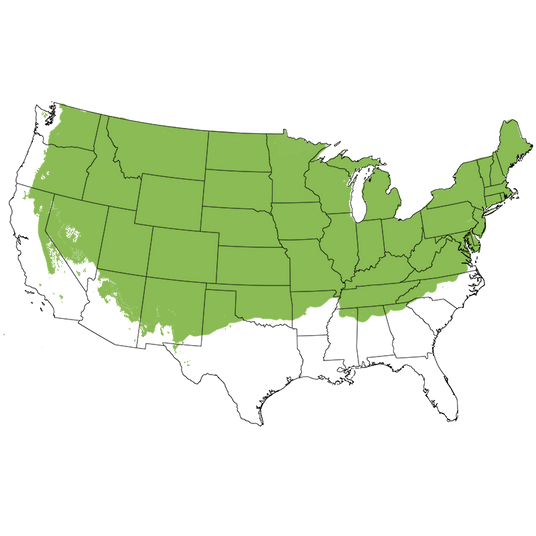
Growing Zones 2-7
Redwing® American Cranberrybush Viburnum (Viburnum trilobum 'J. N. Select') has something for every season! From the spring foliage emerges with a reddish tint. White, lacecap flowers appear in mid-May, followed by persistent, bright-red fruit which attracts birds. The fall foliage is a stunning brilliant red, which is especially attractive with the very impressive berry display!
Featuring a good growth rate and attractive, red-tinted new foliage, Redwing® has a densely branched, upright, round shape that offers something of interest all year! This form of the native American Cranberrybush has all the cold-hardy and resilient features of the native varieties! Including the snowy white lacecap flowers, tri-lobed foliage, and that dramatic fall color! Like other Cranberrybush Viburnum, the clusters of glossy red fruit are edible and can make uniquely sweet-tart jams, eaten fresh, juiced in drinks, and desserts - or be left on the bush to attract and feed migratory birds and local birds staying put all winter!
What a great flower, fruit, and foliage combination! Plus, this plant is attractive to bees, butterflies and birds! Tolerating icy USDA growing zones 2 through 7, these are disease resistant, deer resistant and even pest resistant! Adapting to an amazing range of soil (including clay) and climate conditions, water needs, and even drought tolerant once established. Such a colorful, beneficial and durable shrub certainly needs to be in your garden today!
Planting and Application:
Redwing® is an excellent accent plant for screening and informal hedging because the dense foliage makes a nice privacy 'living fence', property dividing barrier, and shelterbelt for wildlife and birds. Include as a backdrop among cottage and pollinator borders, Rose gardens, and perennial beds so butterflies and bees have ample nectar and you'll enjoy snipping a few of the lacecap blossoms for your vase bouquets too!
Use en masse to hold back soil and water runoff along stream banks and other water features, or atop a hard-to-mow hillside for erosion control. Planting banks and swaths of these vibrant shrubs maximizes their saturated color and dynamic features! Shrugging off harsh conditions, don't be afraid to use these in heavy deer-populated areas, along the sidewalk, street or driveway!
By planting en masse and among other varieties of Cranberrybush, you'll increase pollination and therefore, you and your feathered friends will enjoy a larger display of fruit per shrub! Try pairing it with an American Cranberrybush or the smaller and Sargent Cranberrybush! Your bees and butterflies will thank you for providing them an early spring feast (This native cultivar is also a native pollinator larval Host Plant!)!
- Snowy White Lacecap Blooms
- Tri-Lobed Red Tinted Green Foliage & Red Fall Color
- Blooms for Pollinators & Persistent Berries for Birds
- Extremely Adaptable & Hardy!
- Hedge, Privacy, Wildlife, Erosion & Border Backdrops
#ProPlantTips for Care:
Redwing® requires full sun to partial shade, moist, well-drained soil is best. It is tolerant of wet soils and also tolerant of alkaline soils. Once established, drought, clay and mild saline conditions are no problem! Because this Viburnum variety grows in full sun and it is a good choice to use throughout your landscape. Well-drained soil is best, but it will adapt to many soil types that shed water quickly after a rain event.
Prune lightly only to shape right after flowering is finished. This shrub blooms on last year's wood, so don't delay. Waiting too long will cut off the buds of next year's blooms. Renewal prune when dormant by removing the oldest fattest branches to the ground.
- Flowers & Fruits Best in Full Sun
- Adaptable to Most Well-Drained Soil - Even Clay
- Average to Higher Moisture Needs & Appreciates Mulched Beds
- Prune After Flowering
- Deer Tend to Leave it Alone & Juglone Resistant
The bird and bee-friendly, edible ornamental Redwing® American Cranberrybush Viburnum truly has it all! Hurry and order your own dynamic four-season color accents today at NatureHills.com!
Frequently Asked Questions
Are Redwing® American Cranberrybush Bushes Fragrant?
The flowers on the Redwing® American Cranberrybush Viburnum have a mild sweet fragrance.
When Do You Prune Flowering Viburnum Shrubs?
Viburnum shrubs bloom on old wood, so it is very important to only prune them immediately after the flowers fade. Should you wish to enjoy the fruit that forms after the flowers fade, then do not prune, instead remove one-third of the oldest, fattest stems that are no longer as vigorous. Pruning them out at the ground level. This leaves fruit for birds and winter interest and increases overall plant vigor while reducing the size of your shrub.
Do Viburnums Like Full Sun or Shade? What is the Best Location for Viburnum?
Viburnums in general need full sun for the most fruit and flowers, but also do well in partial shade and afternoon shade. Highly adaptable, they enjoy mulched, enriched soil that is slightly acidic. They need regular moisture while young, but once established will only need supplemental moisture during extreme heat and drought.
Does Redwing® American Cranberrybush Viburnum Produce Fruit?
The Redwing® American Cranberrybush Viburnum will produce glossy red fruit but they need another Viburnum trilobum planted nearby for cross-pollination.
Does Viburnum Spread?
Redwing® American Cranberrybush Viburnum will stool out as the plant ages. Renewal pruning encourages new shoots to develop from the roots which is good but you can limit the width of the plant if so desired. It is not considered invasive.
Do Viburnum Shrubs Lose Their Leaves in Winter?
Redwing® American Cranberrybush Viburnum is a deciduous Viburnum and will drop its leaves in the fall.
What Shipping Options Do You Offer?
NatureHills.com works closely with our growers and nursery professionals to ensure we ship when it is most appropriate for your area. Our goal is to deliver the hardiest plants by avoiding extreme high and low temperatures. Check out our shipping schedule for more information and to learn our wills and don'ts when it comes to shipping plants. Find your Viburnum Bushes for sale here at NatureHills.com!







